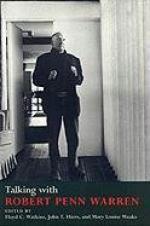|
This section contains 261 words (approx. 1 page at 300 words per page) |

|
Lionel Trilling once wrote of E. M. Forster that he refused to be great—by contrast, presumably, with D. H. Lawrence, who insisted upon greatness. I am saying that those American poets who, under different circumstances, might make a leap toward greatness seem to have decided not to leap. It is not that present circumstances are in themselves desperately unpropitious. Who knows anything, in any case, about the circumstances that favor major work? It is that grandeur, especially of the bardic kind, is out of phase. Poets are more confident that something good may arise from the process of adding one fairly well-shaped brick to another. (pp. 9, 88)
Warren is exemplary in assessing the properties of his experience by appeal to whatever he thinks of as active beyond sense and mind: Sometimes he calls it History, sometimes Nature, sometimes Fate, without claiming to be on intimate terms with any...
|
This section contains 261 words (approx. 1 page at 300 words per page) |

|


